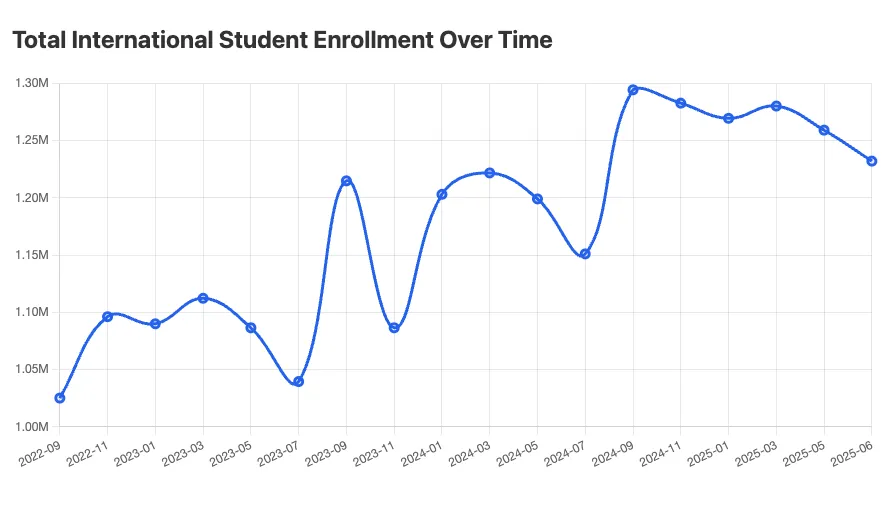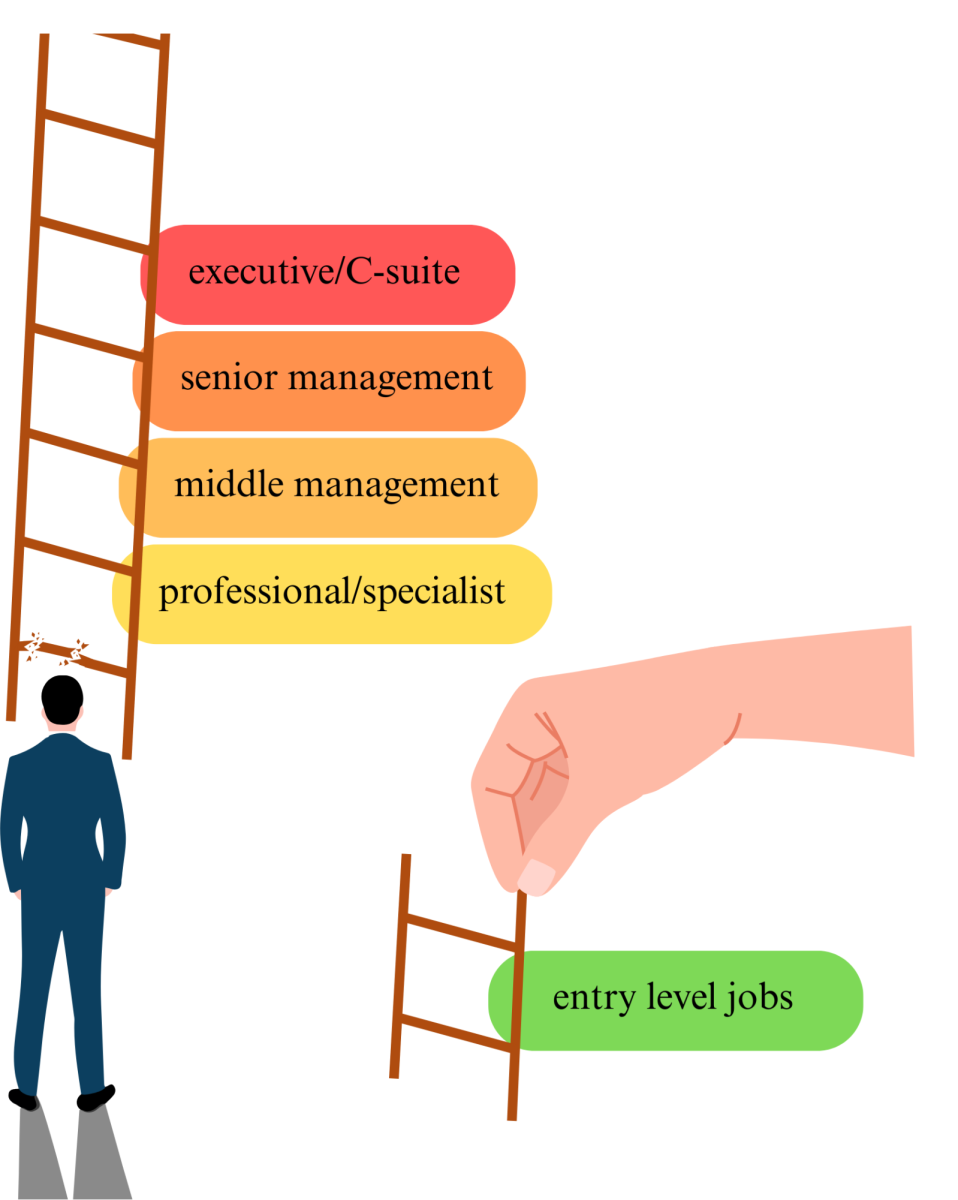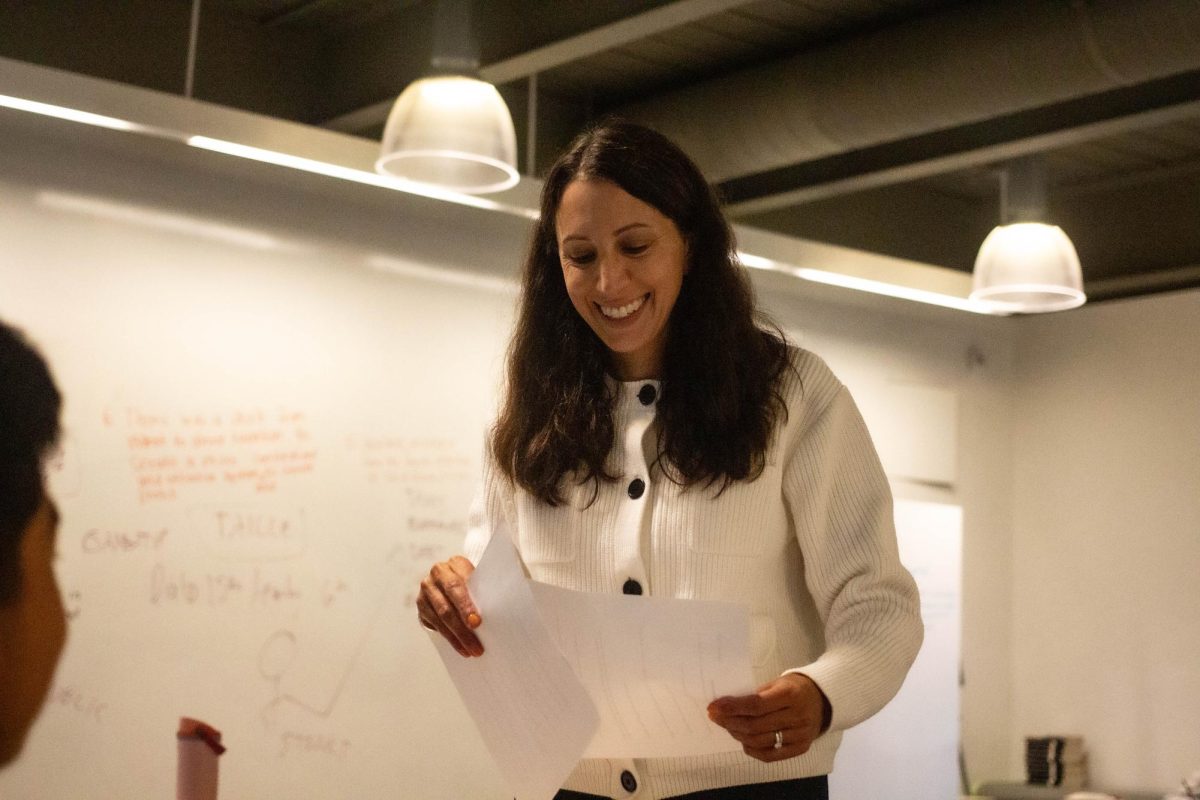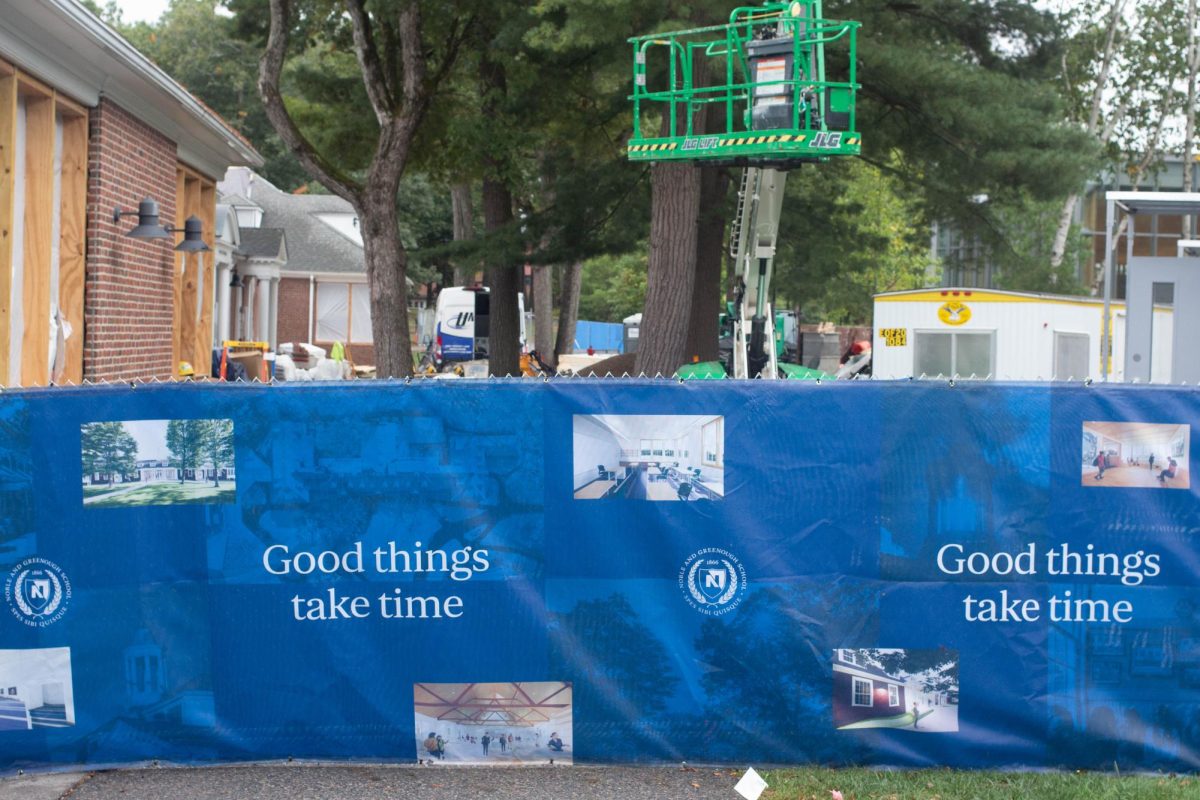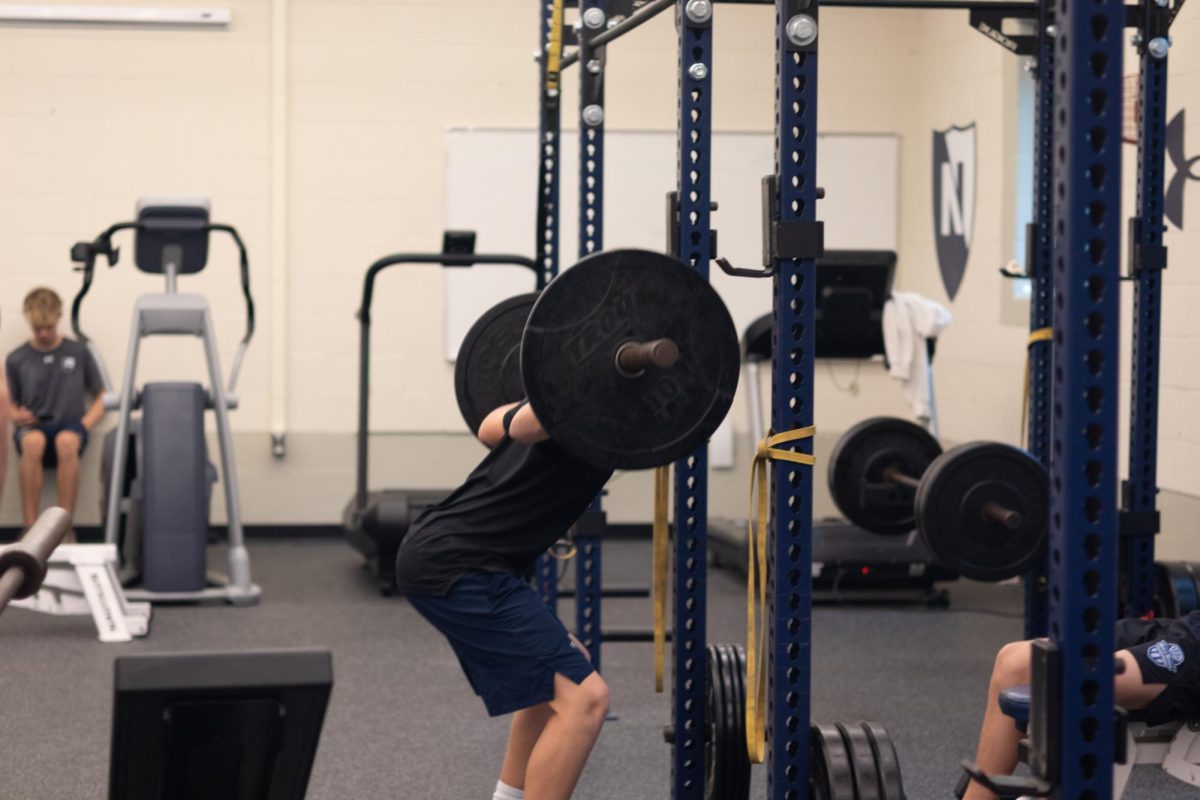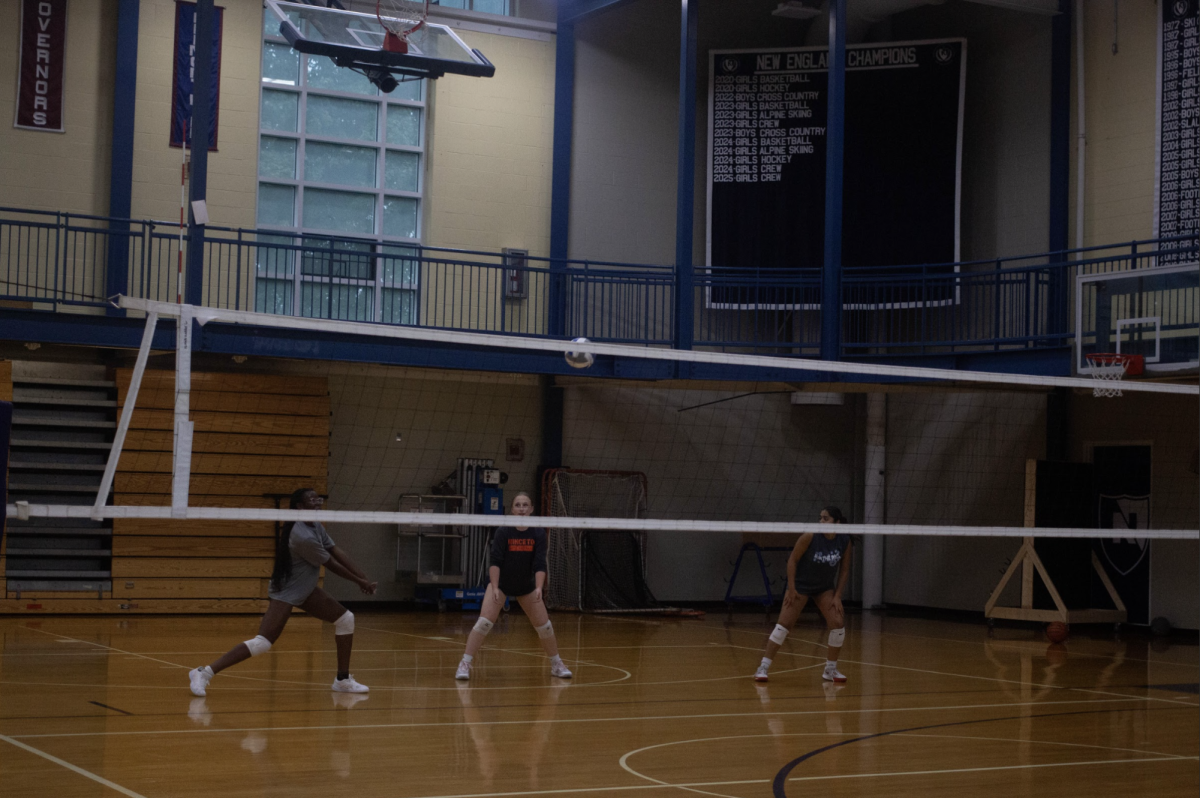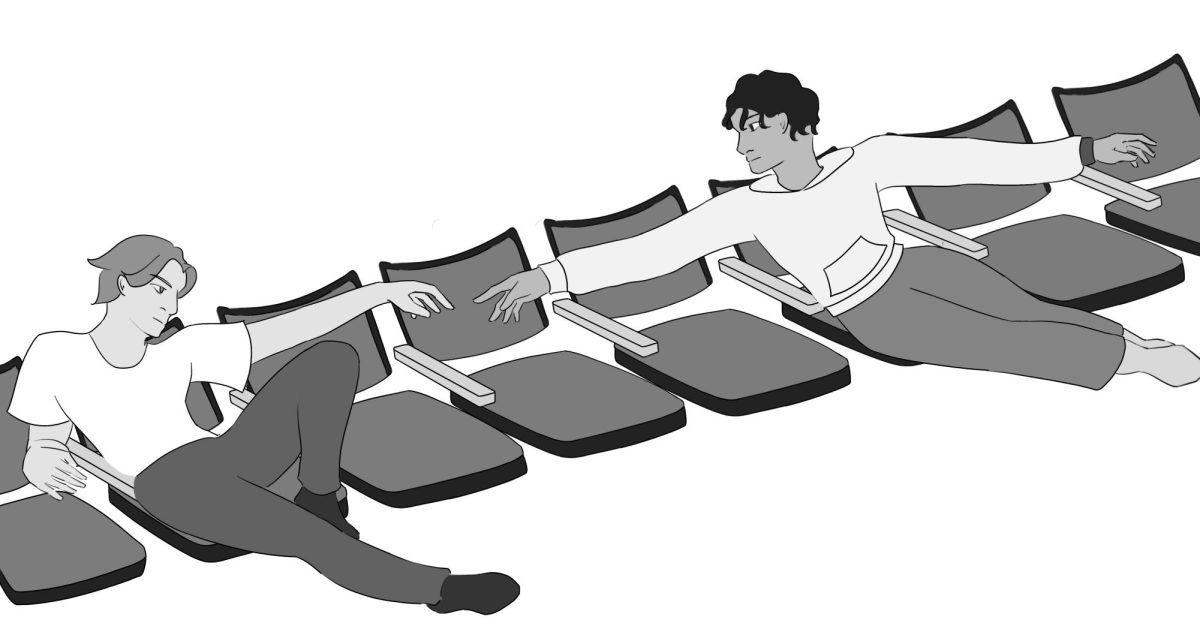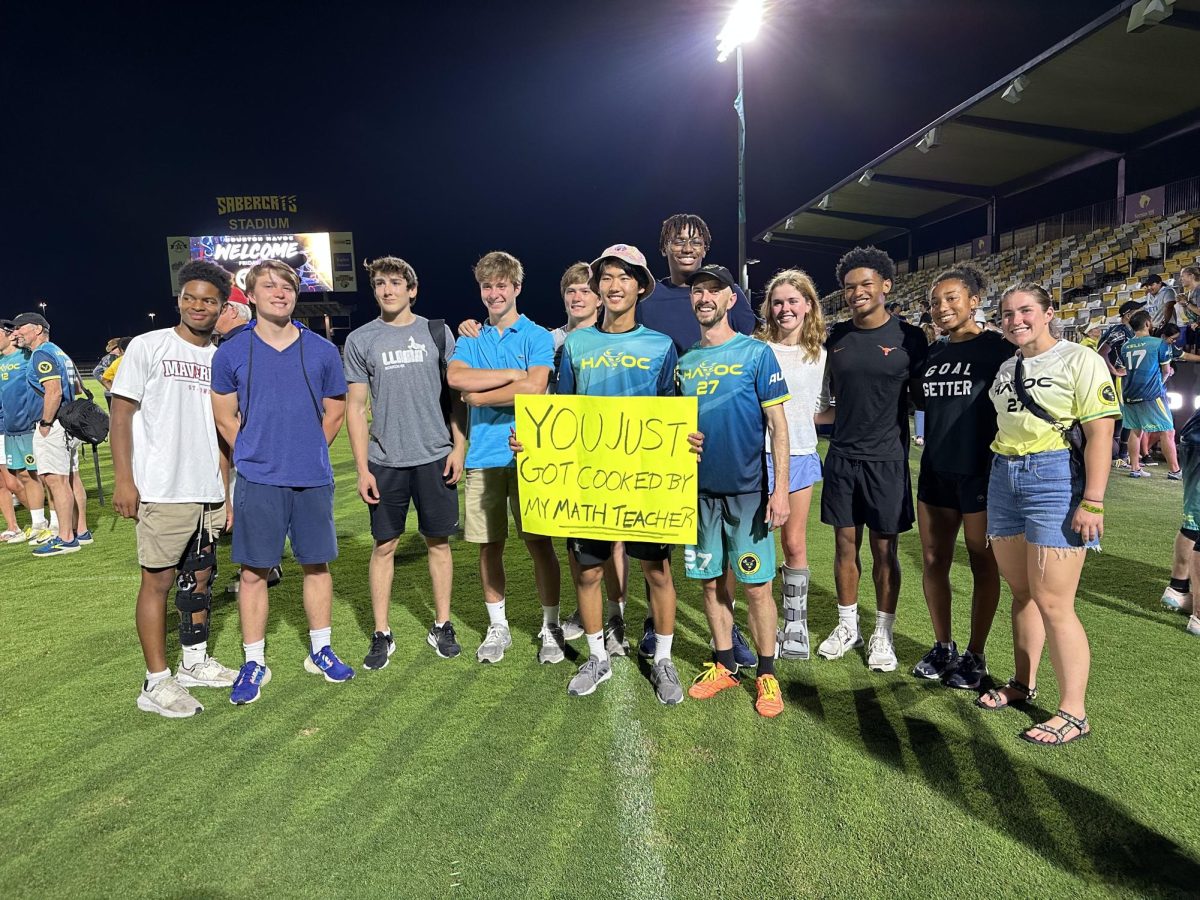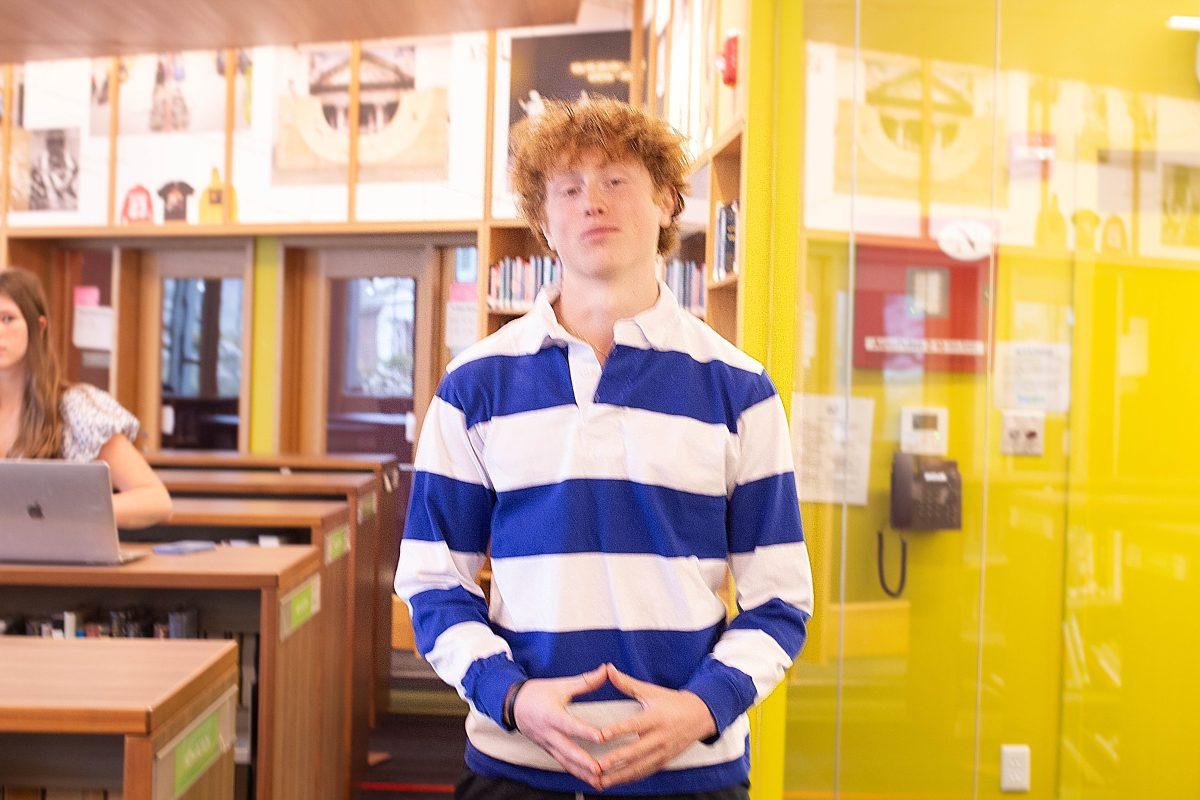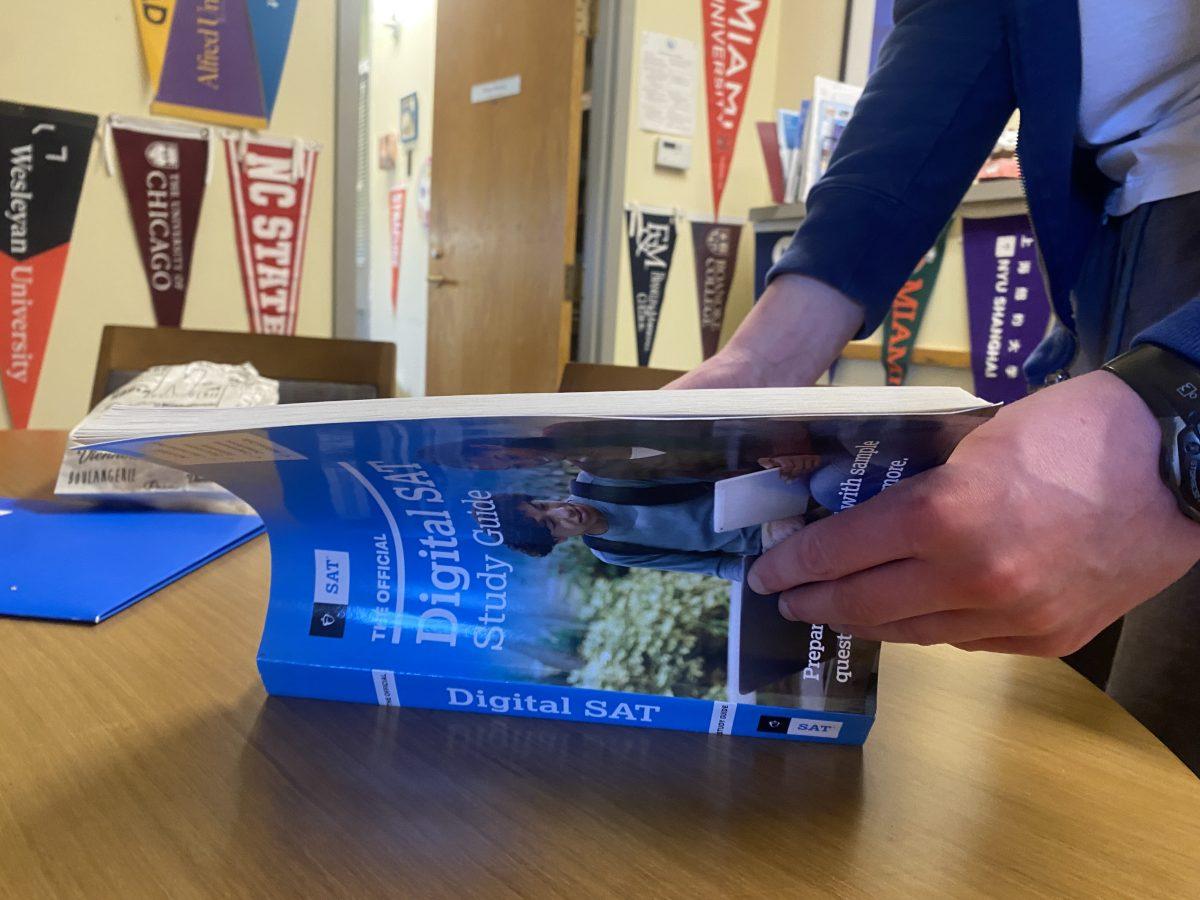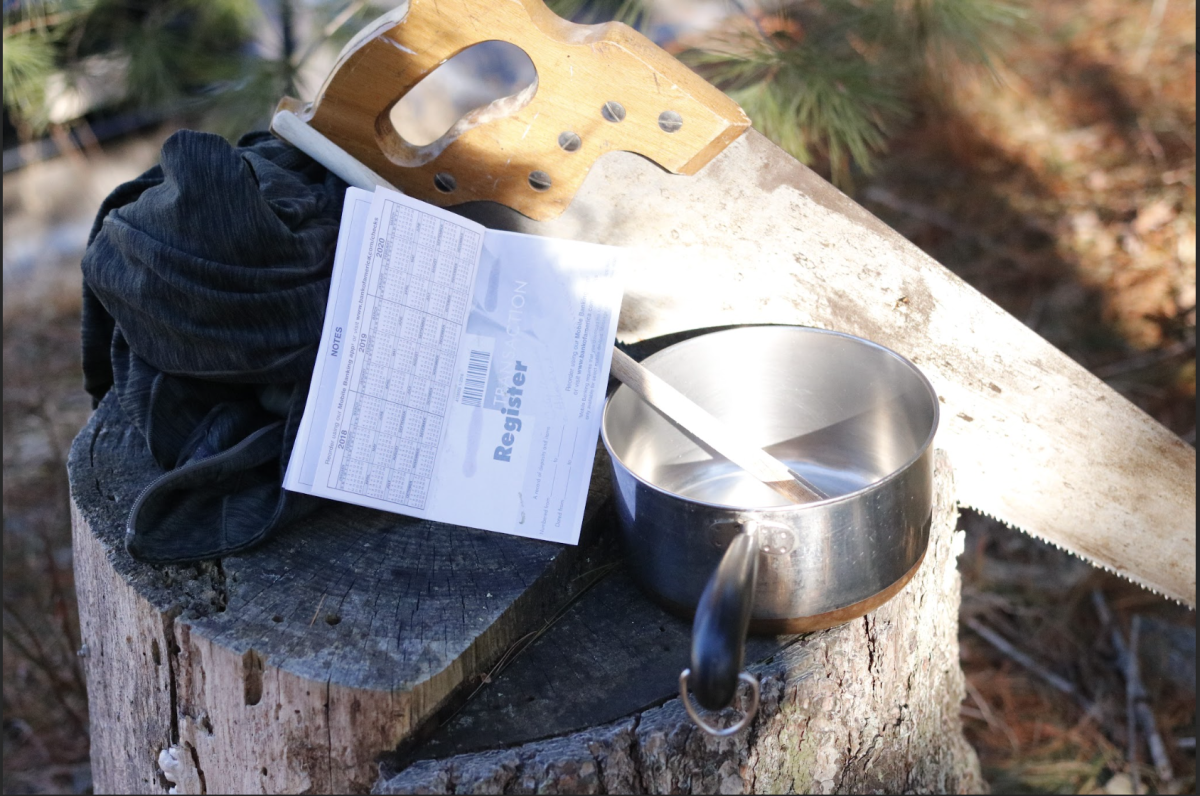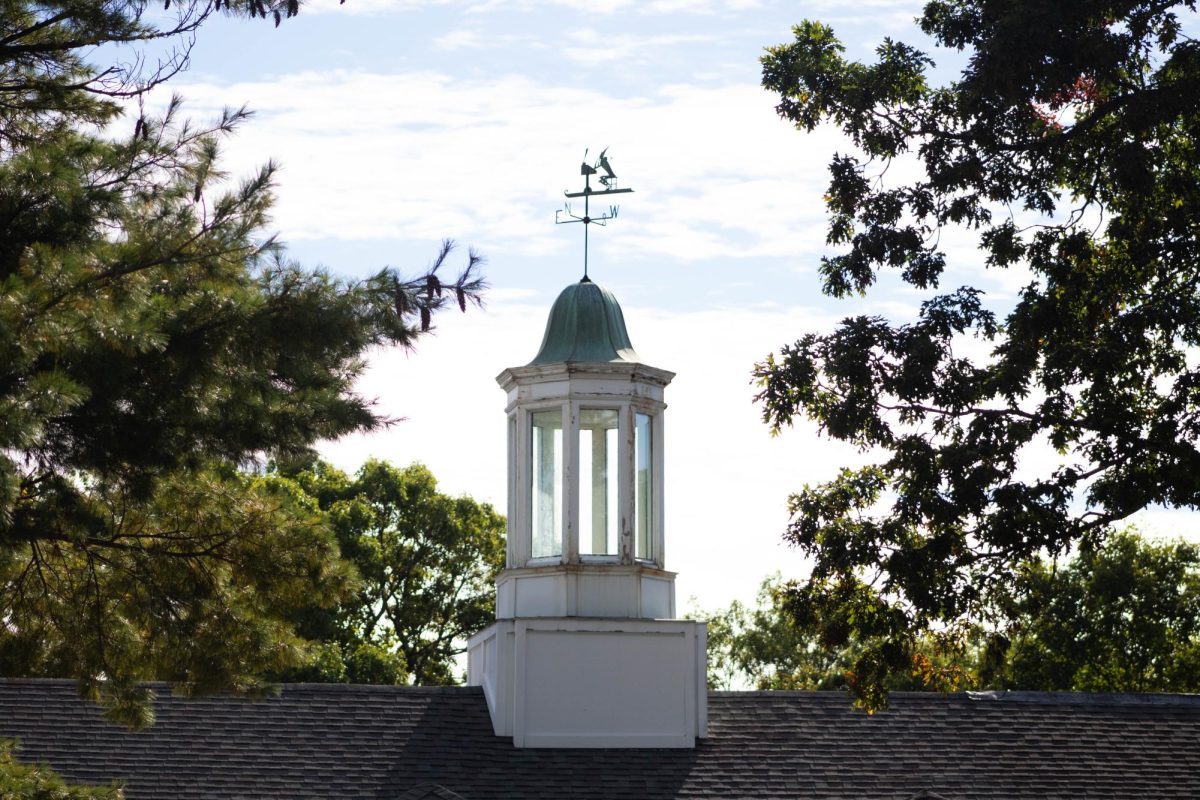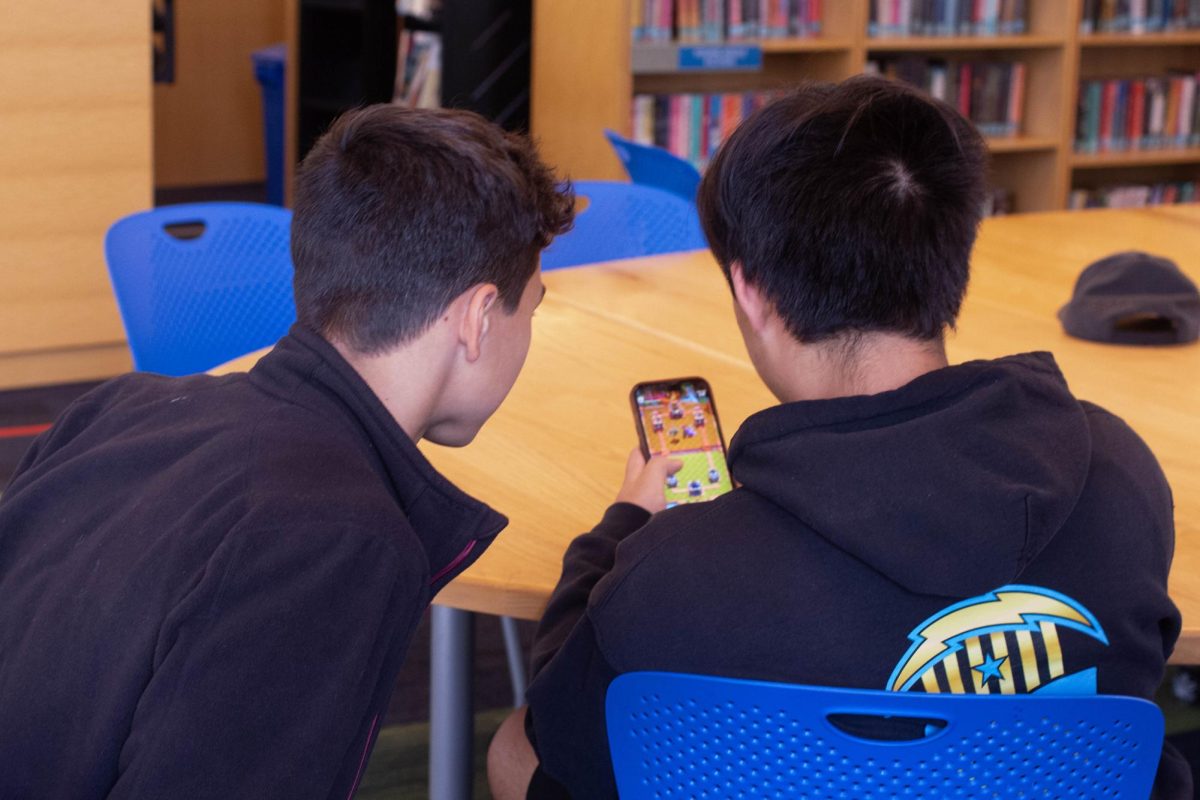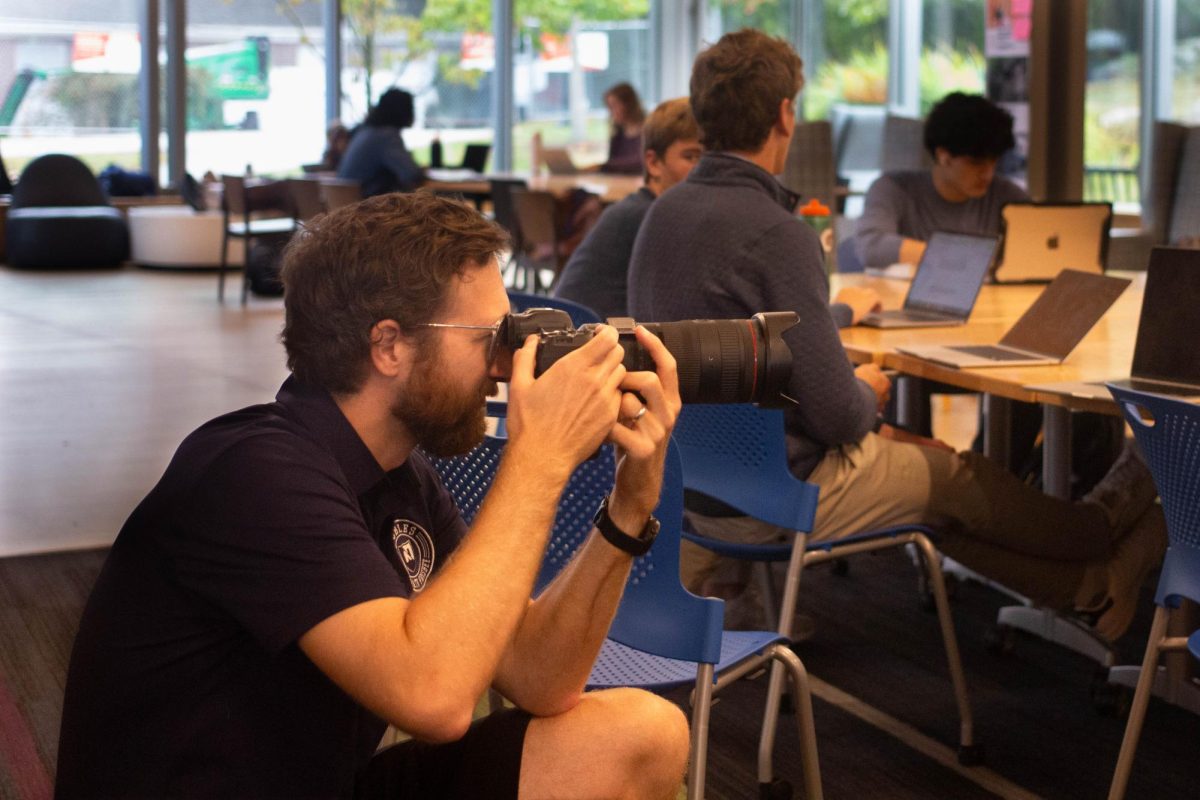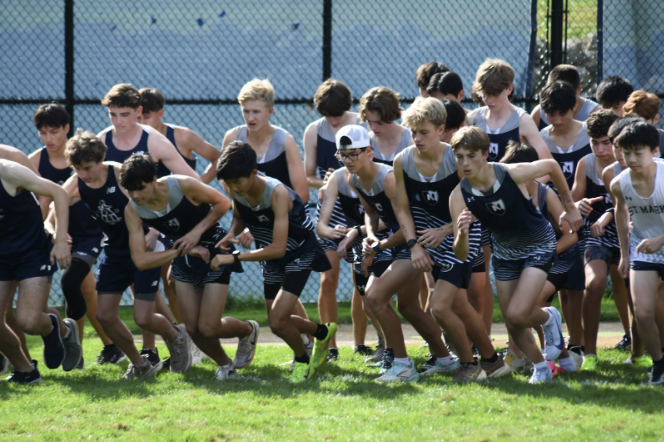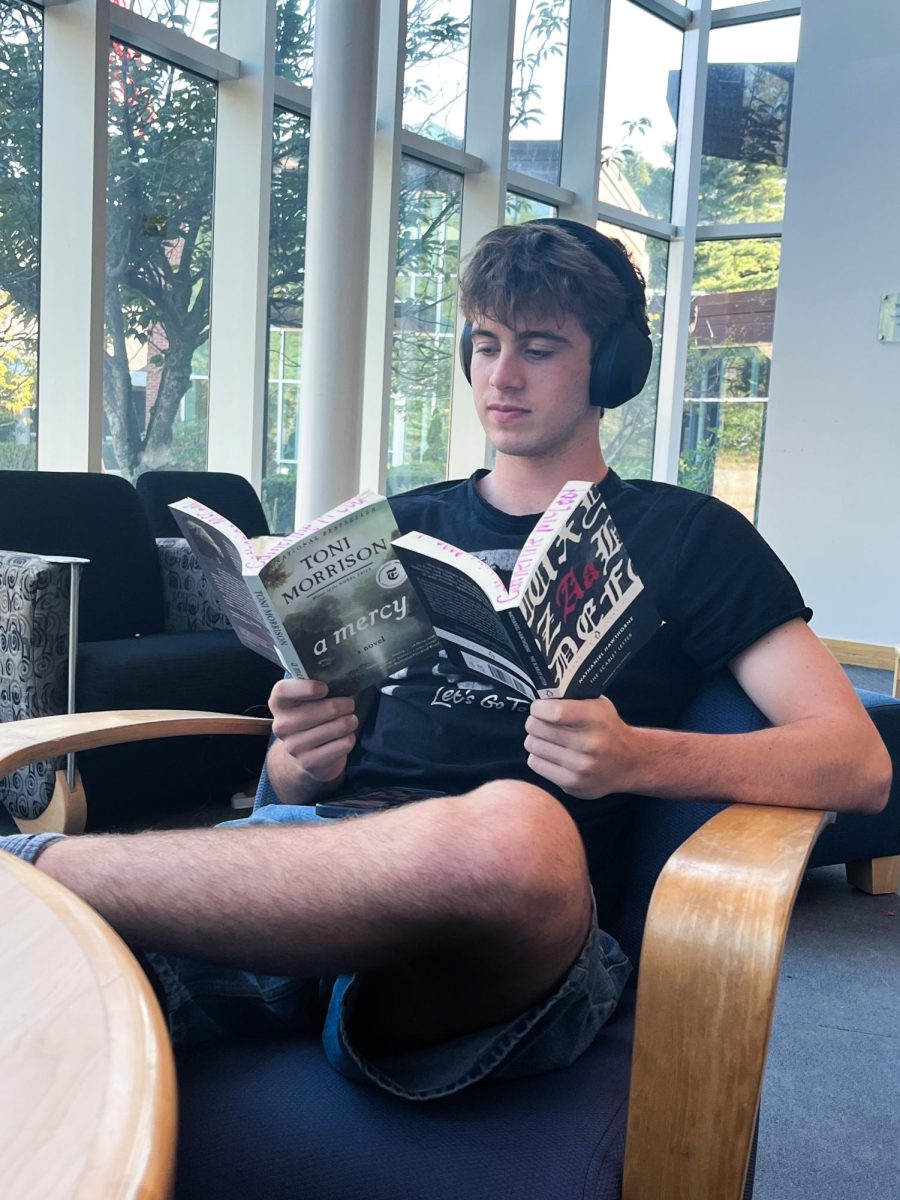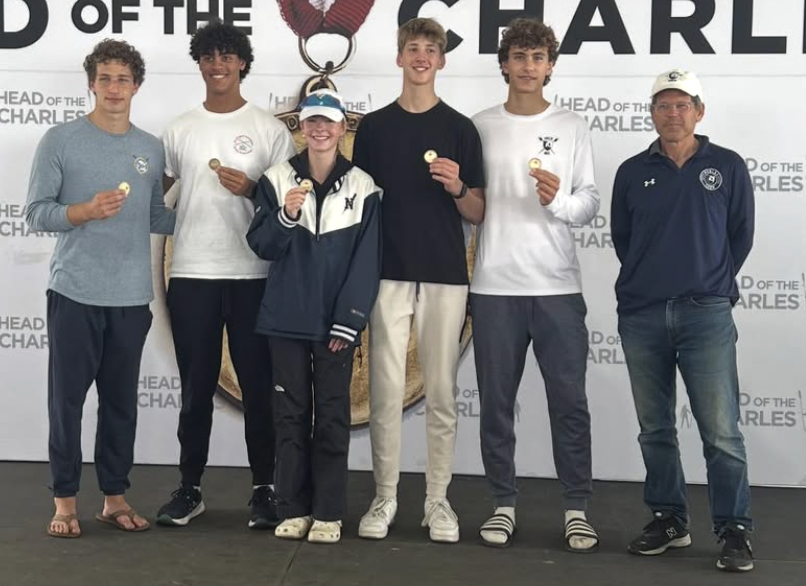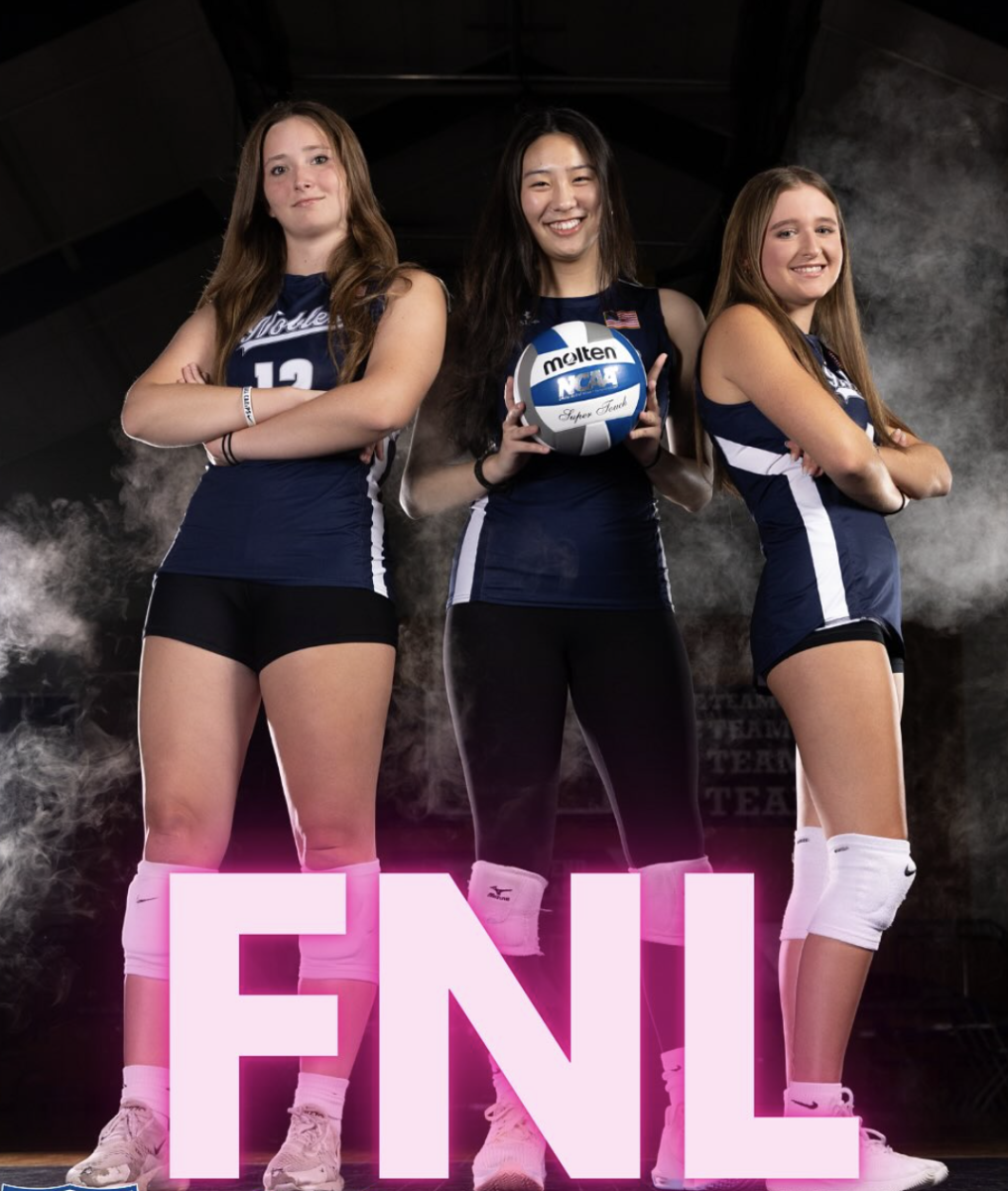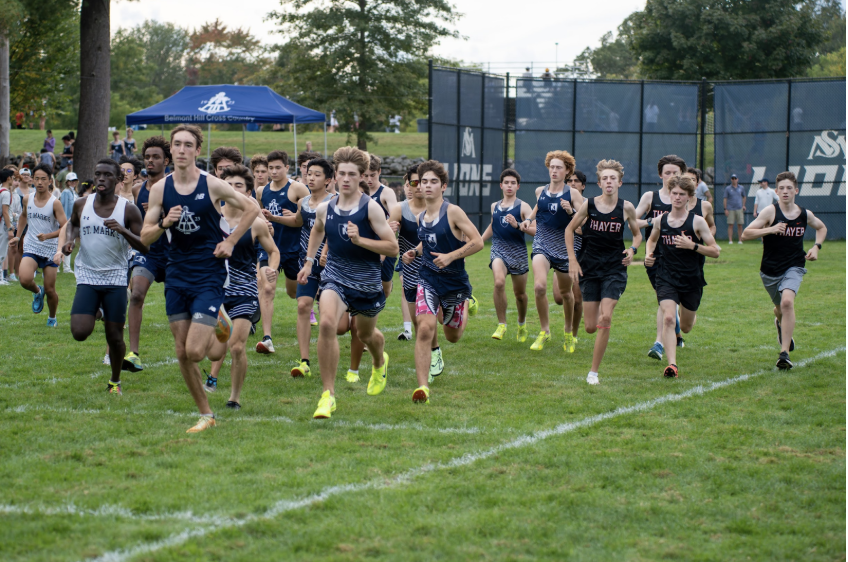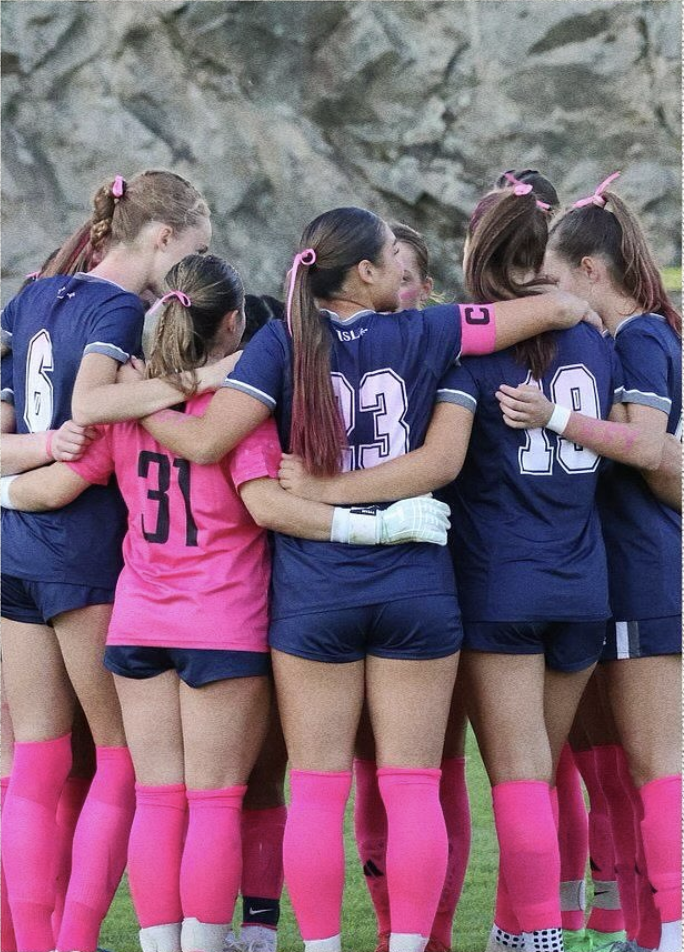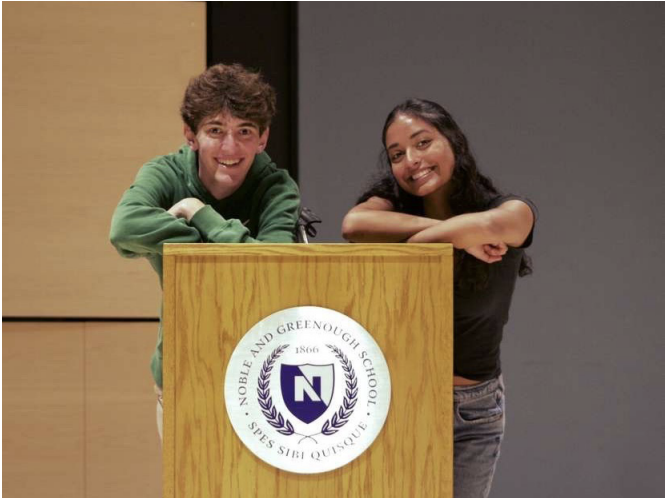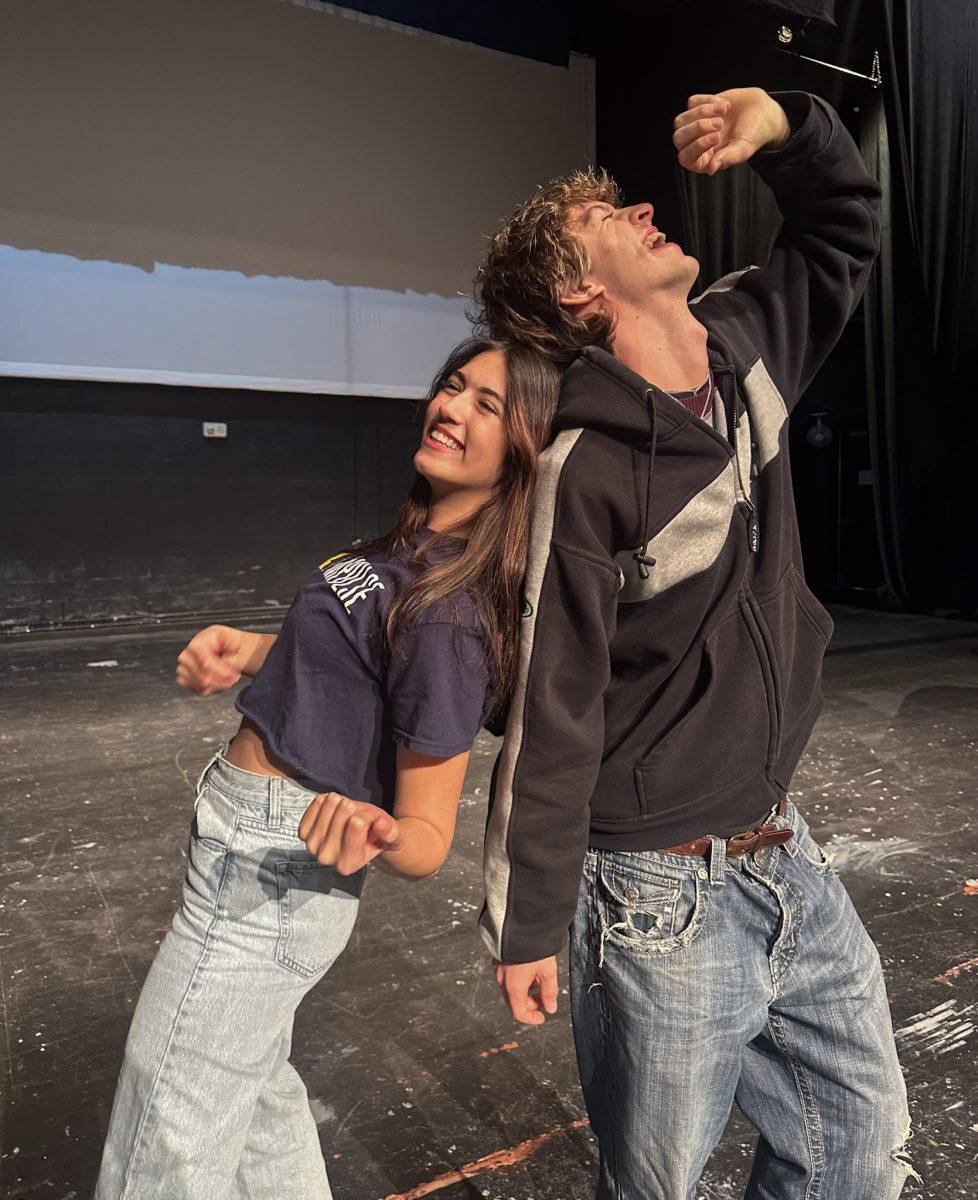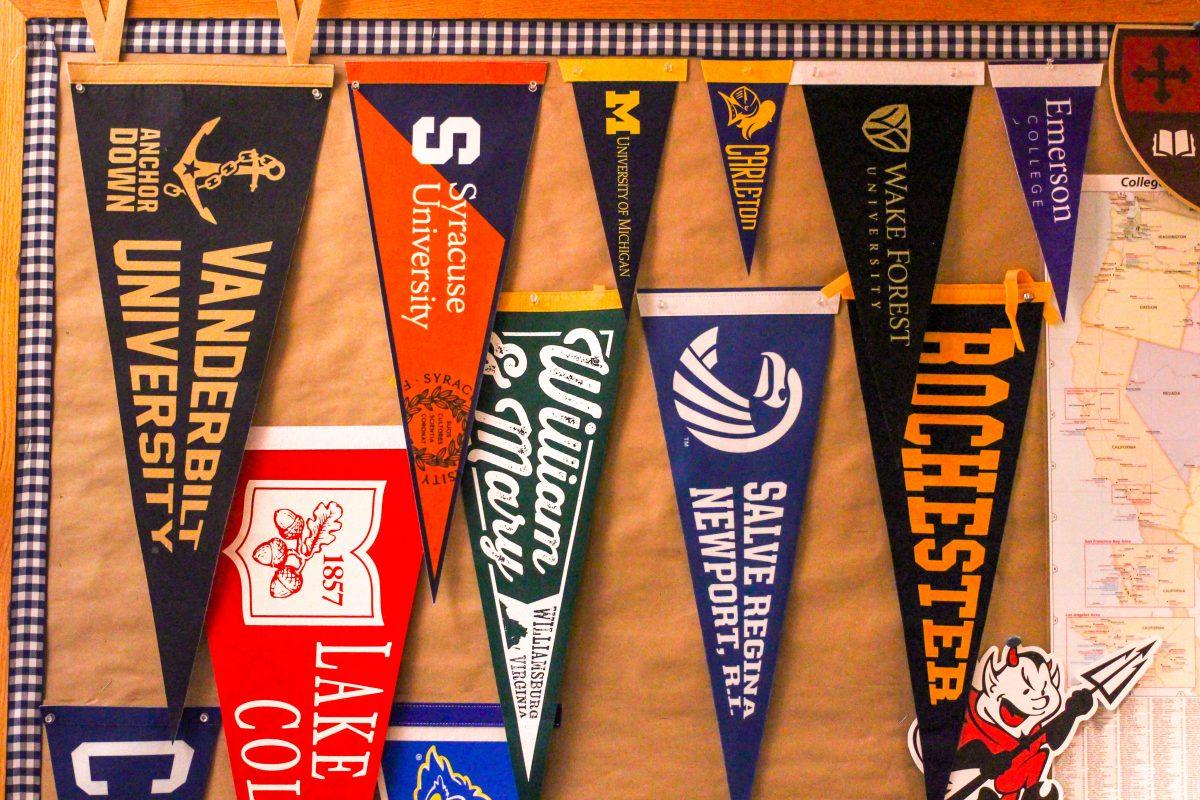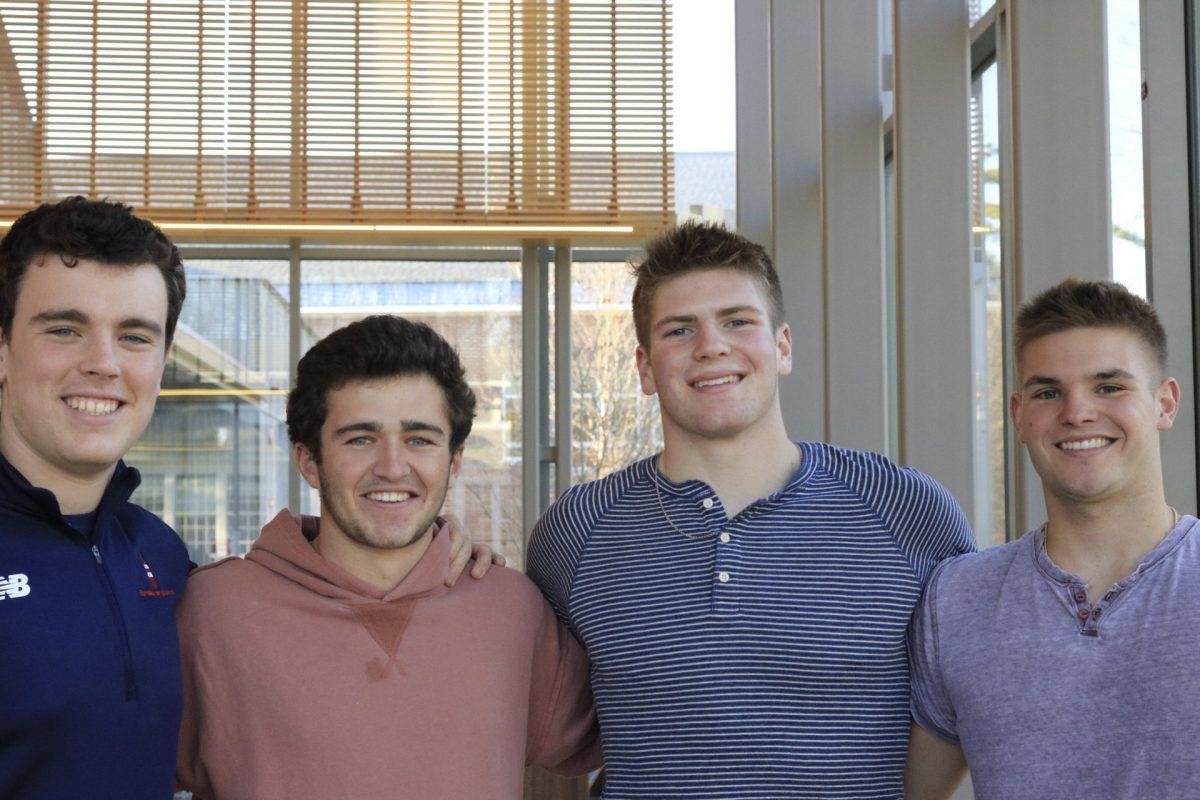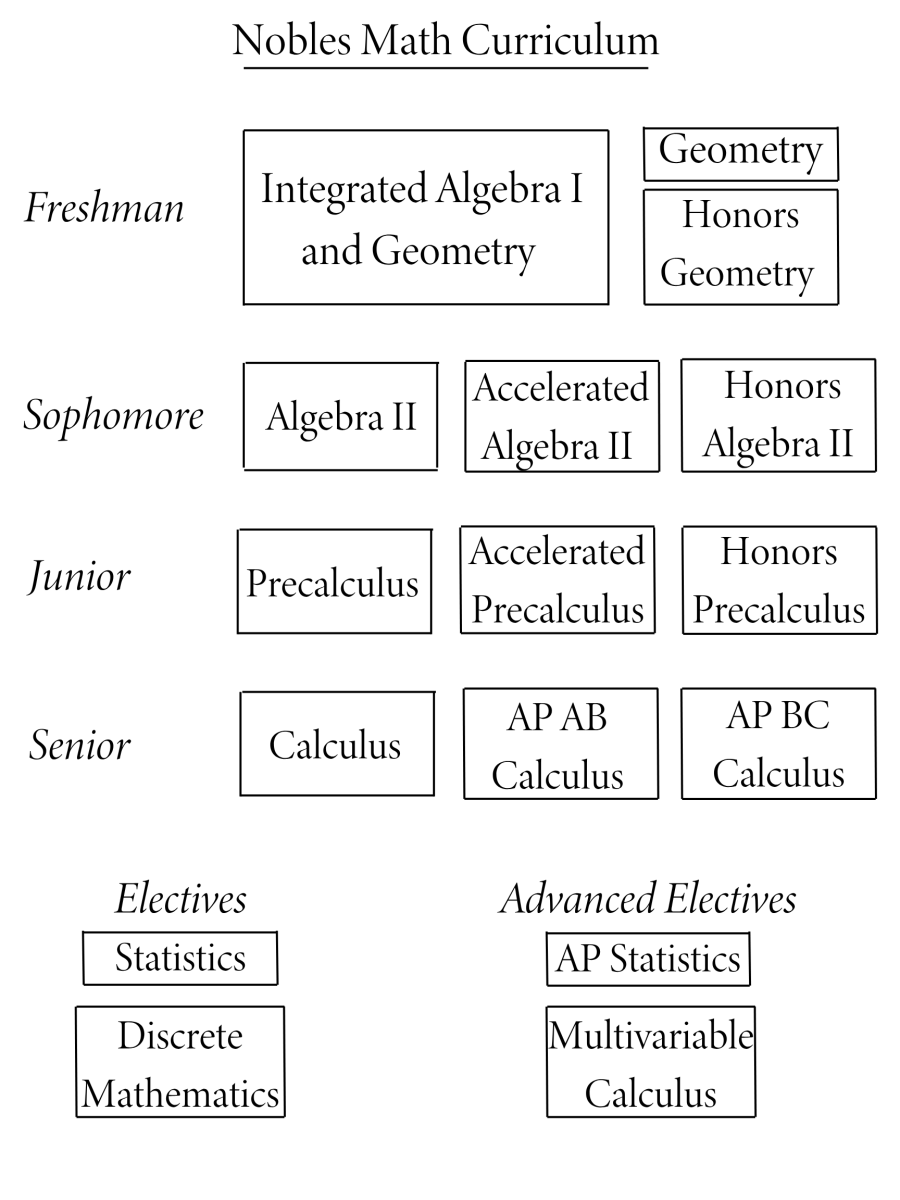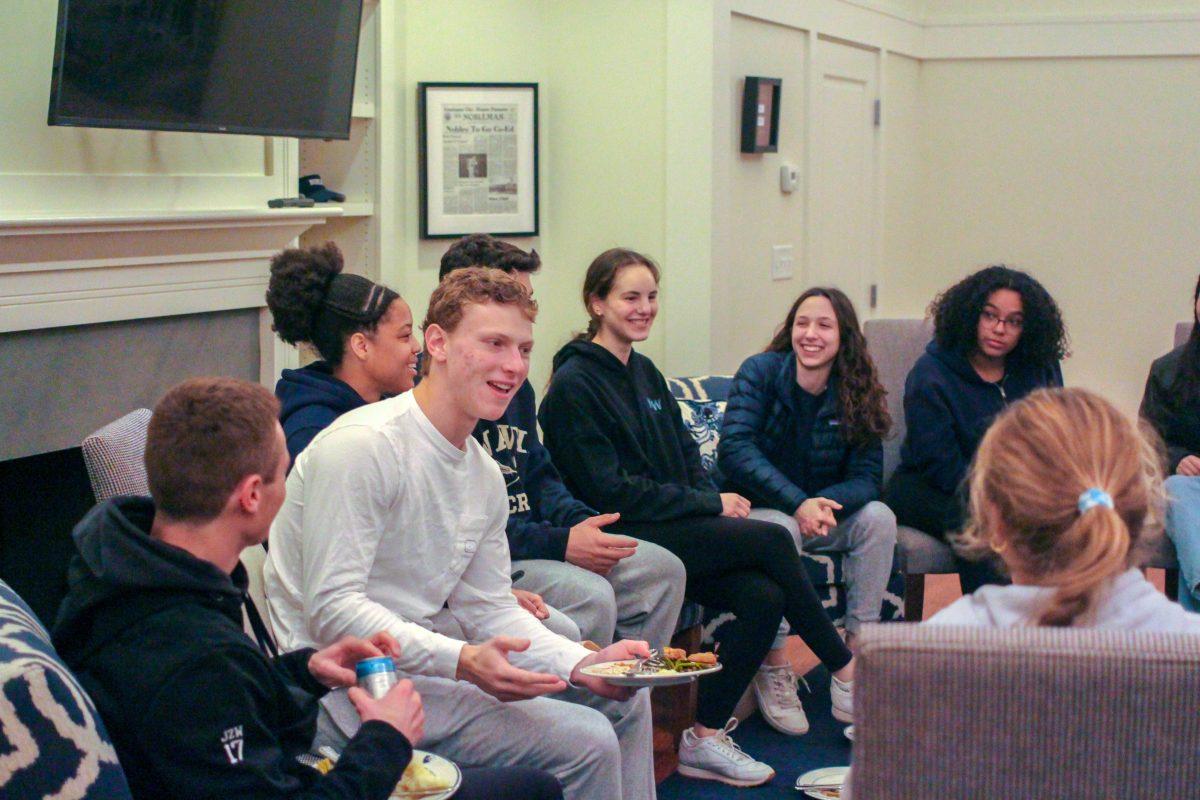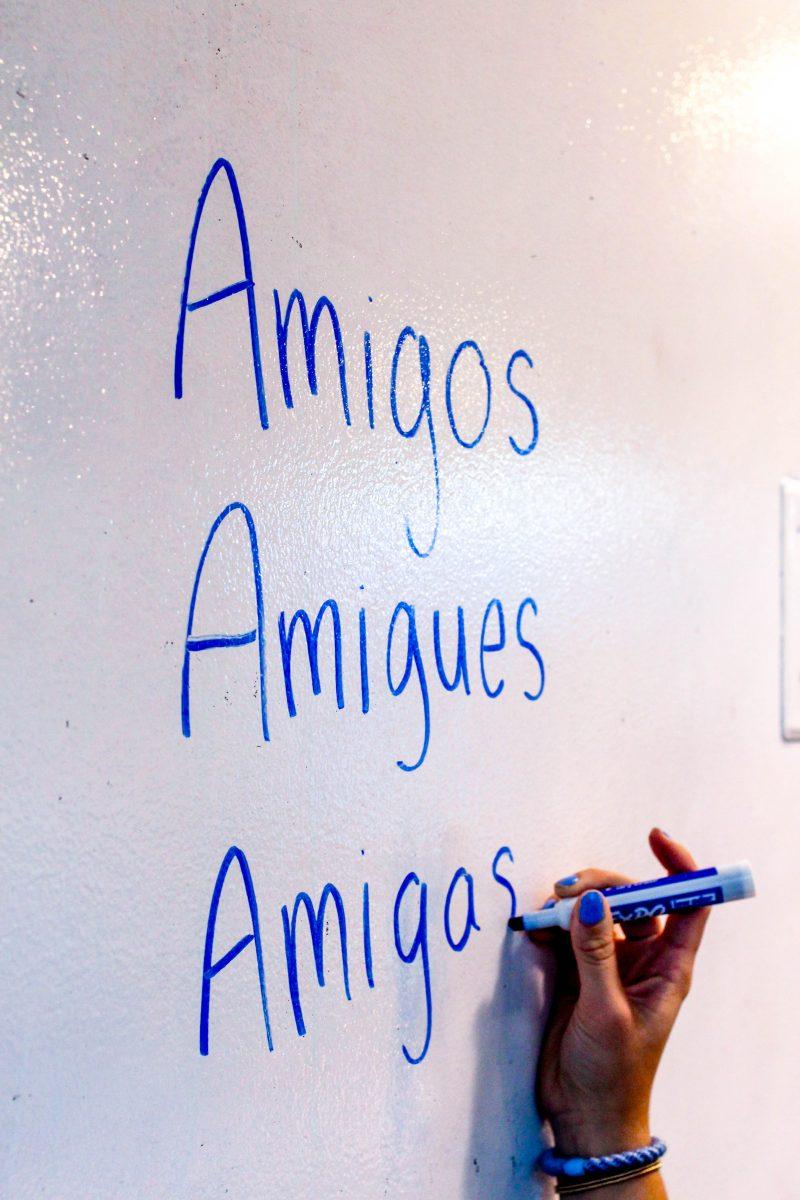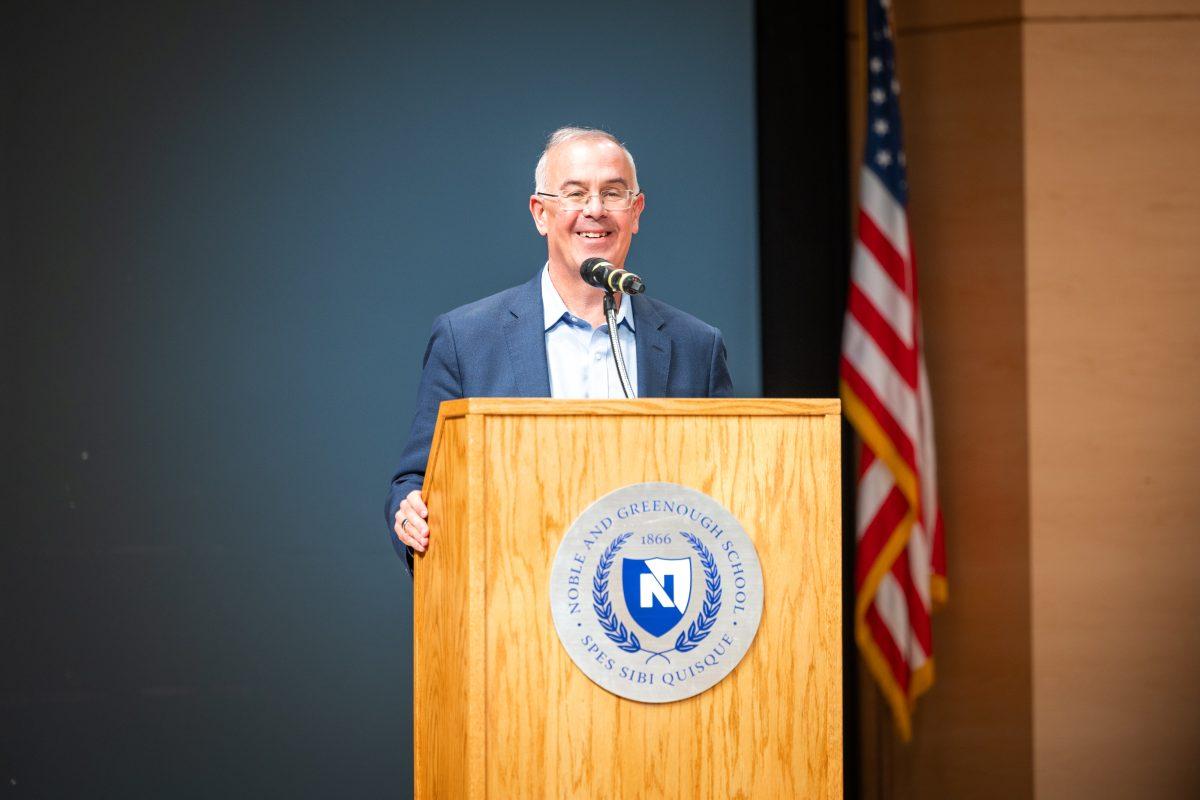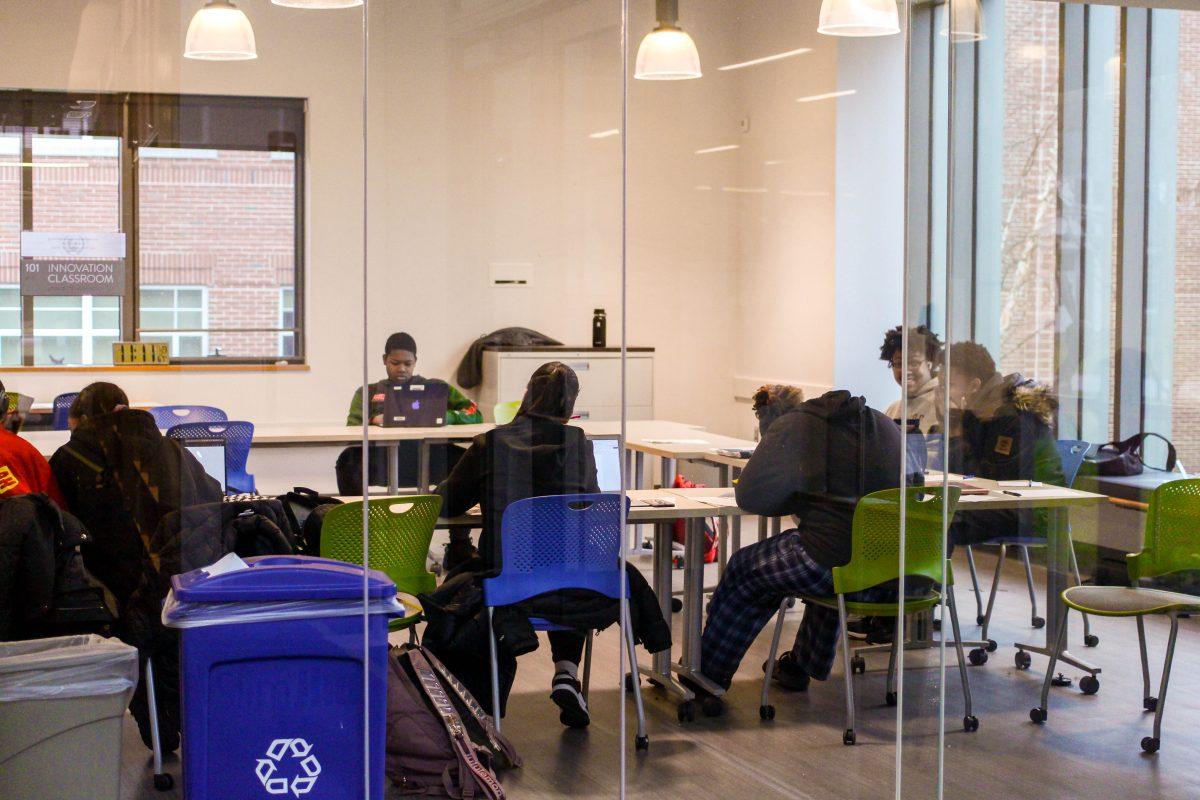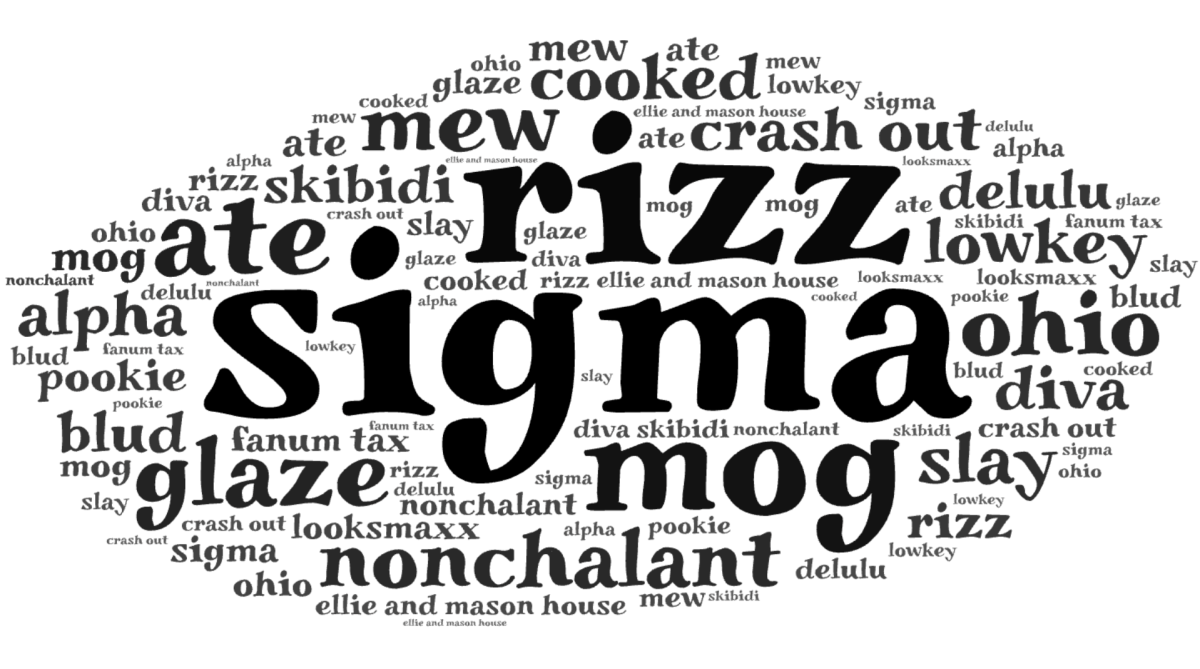“What would you do if you weren’t afraid?” asked David Brooks during his long assembly talk in October. At Nobles, academic pressure makes conformity inevitable. Four years of high school can feel like an endless quest for accolades, grades, and other arbitrarily designated metrics of self-worth. Because of this rigid culture, one wouldn’t expect a Nobles graduate to pursue a career in the arts. The Nobleman will unpack the experiences of Nobles students who choose to go into performing arts after high school.
The college application process for performers differs from the average Nobles student. On top of the Common Application, they have to submit an additional artistic application. For actors, this usually means submitting various sample videos demonstrating their skills, often having to tweak each one to meet the criteria of each specific school. This presents a significant workload for someone like Lauren Velasco (Class I), who is applying to 20 different schools. “It’s super tedious, and you don’t want to mess that up because if schools realize you can’t follow simple directions, why would they accept you into their program?” she said.
Many resources at Nobles help prepare students for a future in performing arts. “I took Dramatic Literature at Nobles last year, and between that class and everything [Mr.] Diaz has already taught me, it’s been pretty easy to follow my classes. It feels like, ‘Oh, I can do this. I already know this,’” Stage Management major at USC Karina Cruz (N ‘24) said. She adds, however, that Nobles did not promote these resources like they’d promote resources for STEM or humanities students. “When people say Nobles prepared them it’s because in all of our History or English classes, you learn to write well. But with stage managing and dramatic arts, it’s a lot of figuring out what you want and doing it,” she said. Performers at Nobles, consequently, have to practice a lot more self-advocacy.
“At the end of the day, I want to do
what makes me happiest.”
This heavy workload often goes unrecognized, as there are typically few students in a given class who have to build their college applications both academically and artistically. “It was a lot more time and effort than I think a lot of other people did. The stress gets to you, for sure, and I think it’s hard to not have anyone that understands that,” Cruz said.
Many wonder what the benefits of pursuing performing arts in higher education are. Does one need a degree to get on Broadway? “The answer is no,” Velasco said. She and other aspiring actors want to get their Bachelor of Fine Arts (the degree one typically receives after studying the arts) because of the training and connections provided by higher education. The power of networking is essential to success in the performing industry. “If you can meet the writers, become friends with the writers, then they write you in their future shows and stuff like that,” professional film actor Henry Dolgoff (N ‘19) said. Going to a school with a renowned performing arts department can give you these vital connections.
Cruz affirms, however, that the educational aspects of a BFA program are just as crucial as its networking opportunities. She is currently studying union laws and other policy-based aspects of stage management that were simply not apparent to her when she worked at the student level. Through Mr. Halperin, Mr. Diaz, and her newfound resources at USC, Cruz already has the connections necessary to get started in the industry, but getting her degree is requisite to prepare her for the professional world.
“If you can meet the writers, become friends with the writers, then they write you in their future
shows and stuff like that.”
A concern for many who choose to go into the performing arts is the potential pressure of such a career. Velasco hopes to study at a liberal arts college instead of a conservatory, saying, “I want to be surrounded by people who aren’t doing the same exact thing as me because I’m afraid of getting burnt out.” This isn’t to say that a conservatory can’t work for anyone. “A conservatory is intense, but it gets you a lot better. People push you to be better and you push them to be better. It’s not for everyone but it’s really rewarding if you can get through it,” Dolgoff said, regarding his experience at the Royal Conservatoire of Scotland. “At the end of the day, I want to do what makes me happiest,” Velasco said. Dolgoff, who recently appeared in the Hulu miniseries We Were the Lucky Ones, discovered his love for acting in a middle school play. “I got up there and I made people laugh with a line, and I was like, ‘Oh, this feels really good.’ So I think from there, I was like, why would I want to do anything else with the rest of my life,” he said. In the film and stage industries, success is not a promise, but for those who really go for it, taking part in the world of performance is a treasure.

